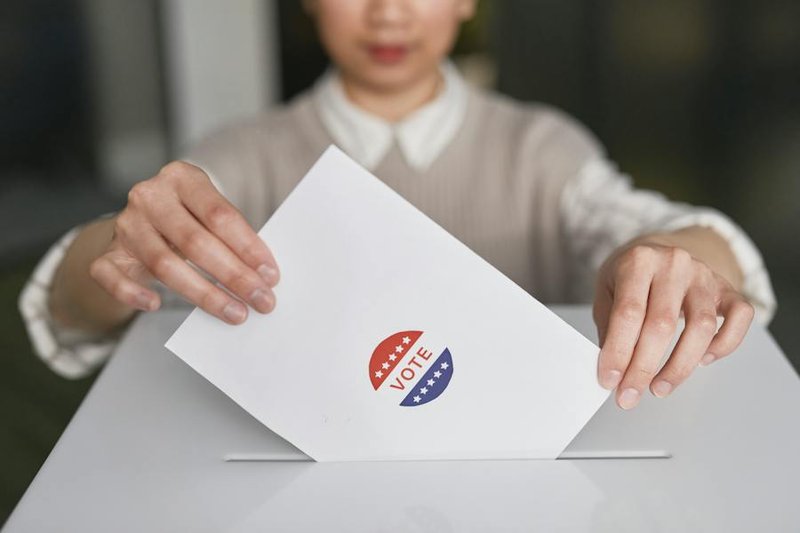Committing to Intentionality for our 'Unprecedented' Election Season
Blog Post

Pexels
Jan. 26, 2024
Well, it's 2024, and a presidential election year strikes again. Democracy is at stake, international law is fake, and how much can you take?
For me, the answer to that is "it's complicated." In 2012, I wrote a high school essay on political polarization set to lyrics from Green Day's "American Idiot." In it, I lamented the quality of the “horse-race” approach to political journalism in election years. By the 2016 election, the first I could vote in, I was already thinking about how young and innocent I was four years prior. Now...I don't know.
Social psychologists have identified fear, anger, and disgust as the emotions often at the forefront of intergroup conflicts, and 15 years ago, Big Tech realized that leaning into this was a great way to make money on the internet. Welcome to social media and online content platforms in the contemporary era.
Both professionals and laypeople often suggest that it’s best to just leave social media platforms—especially X, formerly known as Twitter, Instagram, and TikTok—but I struggle with that. Growing up in classical American suburbia, the internet made me better. It's where I learned about the experiences of people who weren't represented in my local community, unlearned the Evangelical-style homophobia that was pervasive in my environment, and developed something approaching nuance in my geopolitics as I met people my age in other parts of the world. I don't want to live a life in which the only stories I hear about people living in circumstances different from mine are filtered through legacy media or the publishing industry.
So I’ve spent the last six months trying to figure out what to do instead.
Firstly, now that I’ve moved, I’m getting set up with a new therapist here in D.C. That’s worth doing for a whole host of reasons, but before I left Boston, coping with the emotional toll of current political and cultural discourse was a frequent topic in my sessions.
Outside of that, I am actively blocking out time to deeply and meaningfully engage with current events and time to step away. Scrolling through Instagram stories about war crimes* without actually reading the content is the worst activity. You're thinking about human rights violations, which is stressful, without learning anything new or accomplishing anything. Lose-lose.
Now I have time set aside when I have the mental bandwidth to click through posts about all the terrible things happening in the world. I also have my evening writing time when my phone is away, and I work on my iPad, which doesn’t have any social media apps and locks the browser after 10 p.m. This doesn’t always serve as lighthearted fun time where I don’t think about social problems, but I’m processing rather than being bombarded with new information. Writing about how subtle institutional bigotry influences the way marginalized teenagers expect to be treated for the rest of their lives is not relaxing. However, it’s useful as I work to unpack why and how I’ve internalized unhelpful narratives around how relationships should work. The vast majority of the time, I feel better about myself and the world when I finish processing work, which is not the case when scrolling through social media posts about terror.
I don’t want to pretend I have it all figured out when I don’t. I still get caught up in anger and disgust. I still catch myself mindlessly scrolling through social media. But as we move into an “unprecedented” election season coming on the end of at least a decade of “unprecedented” events, I am committing to being intentional. It won’t fix any of the terrible things happening in the world, but it will preserve my sanity, which ensures I can continue to show up in bigger ways.
The other thing I’m working on is trying to be content with small wins. Not in a depressed Gen Z way rooted in having no real hopes or plans for the future, but in a way that prioritizes pausing to recognize impact even when it’s small. I always enjoy reviewing the reports from these newsletters, not to see open rates or comparative performance, but to look at the overlay that shows which links were clicked. If I can introduce five people to an article, resource, or idea that they find meaningful, that is five whole humans with full lives and communities. And I’m working hard to make sure that continues to matter to me operating in a media environment that generally quantifies engagement in units of “thousands.”
In the previous newsletter, I wrote about setting a theme for the new year instead of a resolution. This year my theme is engaging deeply. I see it as going one step past mindfulness—not just being aware of my thoughts, feelings, and behaviors, but making active choices to disengage from something if I’m not focused enough to get much out of it. My hope is that this will make it easier to regulate my emotions and continue to function during this election season. We’ll see how it goes.
*A note from the editor: Typically, you would see “alleged” in front of war crimes as you would other legal classifications bearing the burden of court-validated proof. However, it’s not there in this instance because of geopolitical realities that make receiving a definitive ruling from The Hague unlikely in many circumstances. For example, in the case of Russia and Ukraine, the Kremlin has the power to veto the referral necessary to get such a case in front of the International Criminal Court—even though a separate UN committee confirmed that war crimes occurred. That’s why the term won’t be used in this posting; when it comes to war crimes, adding “alleged” in front of it doesn’t accurately reflect the conditions that brought the phrase into the conversation to begin with. — Julia Craven